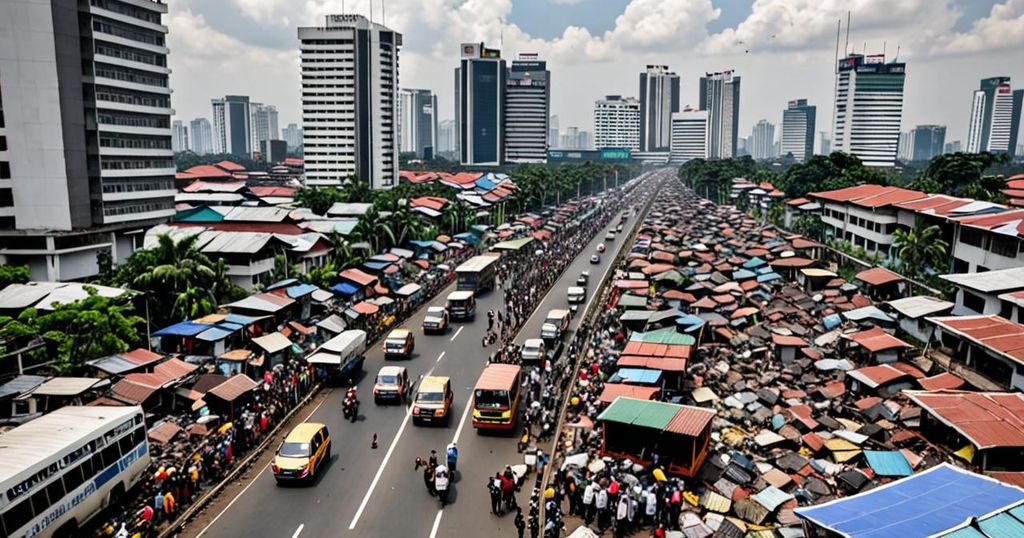The recent resignation of high-ranking officials from the body responsible for the development of Indonesia’s new capital has brought attention to the obstacles facing President Joko Widodo’s ambitious project as the country prepares for the anticipated relocation in a mere two months.
Set to begin in August, the Indonesian government is poised to initiate the transfer of some administrative operations from Jakarta to Nusantara, a new city under construction on the island of Borneo. President Joko Widodo, often referred to as Jokowi, had intended to commemorate Indonesia’s Independence Day on August 17th in the new capital, shortly before his term concludes in October.
The departure of these officials has raised concerns regarding the progress and stability of the capital relocation initiative, signaling potential hurdles that could impede its successful execution. The relocation, a project considered as President Widodo’s legacy, has faced challenges, including dissenting opinions and logistical obstacles that have become apparent with the departure of these officials.
It is clear that the resignation of these officials signifies a significant setback for the new capital project, highlighting underlying issues that require attention. This development has fueled speculation and uncertainty regarding the future of the capital relocation and has reinforced the need for utmost diligence and attention to ensure a smooth transition to the new city of Nusantara.
As Indonesia prepares for this crucial move, it is essential for the government to address the concerns and uncertainties that have arisen in light of the recent developments. The successful execution of the new capital project is imperative as it has the potential to shape Indonesia’s future and redefine the nation’s administrative, economic, and social landscape.
To navigate through these challenges and setbacks, it is crucial for the government to adopt a comprehensive and strategic approach, focusing on effective leadership, robust governance, and meticulous planning. Furthermore, the government must cultivate transparency and foster an environment of open communication to instill confidence and trust in the midst of these turbulent times.
As the nation embarks on this significant transition, it is imperative to uphold the principles of accountability and due diligence, ensuring that the capital relocation project is executed with the highest standards of professionalism and integrity. By doing so, Indonesia can pave the way for a seamless and successful transition to its new capital, setting the stage for a promising and prosperous future.
While the resignation of key officials has undoubtedly revealed the turmoil surrounding Indonesia’s capital relocation project, it also presents an opportunity for the government to reassess its strategies and strengthen its commitment to realizing this visionary endeavor. With unwavering determination and meticulous planning, Indonesia can overcome the challenges at hand and emerge triumphant in the establishment of its new capital.

Leave a Reply